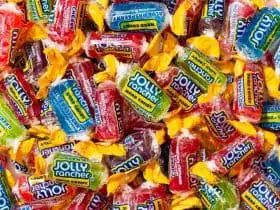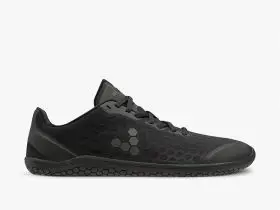People are becoming more aware of the environmental and health implications of their food choices. This has led to many people going vegan, which also means they need shoes that don’t contain animal products. Luckily, there are a lot of great options for vegan shoes!
In this blog post, we will go over everything you need to know about vegan shoes: what differentiates them from regular shoes, how to care for them, and what brands offer these styles, and everything in between.
- What is Veganism?
- What Are Vegan Shoes?
- What are vegan shoes made of?
- Why are most shoes non-vegan?
- Are Vegan Shoes Eco-Friendly?
- What Is Vegan Leather?
- How Do You Recognize Vegan Shoes?
- What Makes Animal Leather So Threatful to Nature?
- What Are Vegan-Friendly Materials?
- Choosing the right vegan shoes
- Top 20 Vegan-Friendly Shoe List
- Taking Care of Your Vegan Shoes
- Other Vegan Shoe FAQs
- Last Words
Let’s get started:
What is Veganism?
What comes to mind when you hear the word “veganism”? Do you get the picture of people who like to have plants as food? In short, veganism is the culture where people step away from animal products because they believe it’s cruel towards the animals. It’s the idea where they support the animal and develop a friendly culture, where the environment is their ally.
Supporting the idea of avoiding the use of animal products is the core of veganism. The group of people who adhere to this idea is called vegans. This practice is aimed to protect animals from all kinds of exploitation, and this tradition is popular in some places.
What Are Vegan Shoes?
Simply put – vegan shoes mean that no animals were harmed in the making of the shoes. Zero animal products used. Plus, it also doesn’t include products that were tested on animals. As a result, many of the typically used materials for shoe-making are left out. For example: leather, glues, fur, wool, etc.
The bright side is that the range of vegan shoes has improved and improved only over the course of years. They don’t just use synthetic leather in vegan shoes. In fact, material technologies have come a long way, and all vegan shoes are now prolific, particularly in active lifestyle shoes.
What are vegan shoes made of?
Man-made vegan leathers have had a strong role in shoemaking for a long time. Many harmful materials are still used heavily in the making of vegan shoes. For example: petroleum-based faux leathers, such as PVC — a very toxic plastic material and polyurethane (PU), which is a bit less harmful.
Although such materials cause less damage to the environment compared to animal leather, they’re still not the ideal option. The given materials are not biodegradable and would emit toxins in landfills for many years, even after the production. Also, many toxic chemicals are used as a part of their production, which causes harm to workers and close communities.
> Further read: What are vegan shoes made of?
Fortunately, in today’s world, we don’t have to select between animal skins and plastic anymore. There are better natural and sustainable vegan innovations out there. And that involves Pinatex — a pineapple-leaf fiber material providing pineapple farmers an extra source of earning.
Other innovations include leather made from wine grapes. It’s made from leftover grapes from the wine industry. Then there’s apple leather, a material crafted from dried apple peels. The zero toxic, animal-free material is essentially used for making items by niche vegan businesses. Also, there’s Cactus leather, used by Luxtra, a handbag company in the UK. The Cactus leather is crafted with zero toxic chemicals or PVC.
Why are most shoes non-vegan?
It’s because a lot of shoe designs — ranging from heels to sneakers — are created with leather. Leather is the number one killer of animals in the fashion business world. It causes more than one billion animal lives per year. The majority of these animals are cows, but leather is also crafted from the skins of sheep, goats, pigs, and so on.
Another surprising fact is that leather can be crafted from cat and dog skin as well. More than 2 million animals are killed each year in China’s cat and dog leather industry, at times making it into the European and the UK markets because of a highly shady supply chain which is impossibly hard to track down. It’s common to mislabel, and oftentimes, there’s no way to find out what or whom you’re wearing when purchasing leather.
Are Vegan Shoes Eco-Friendly?
Sure, everything we produce would impact the environment in a way or the other. But in terms of vegan leather, particularly if it’s plant-based, is a more viable option compared to animal leather. Cow leather has been the most contaminating fabric in fashion, scoring a lot worse than nylon, polyurethane, and polyester.
The environmental expenses of breeding animals for human consumption is massive. And that’s why leather can’t be seen as an environmentally-friendly option. Now, that doesn’t imply that PU or PVC are specifically green. The toxic chemicals included in the production can’t be overlooked, similar to the fact that such materials do not biodegrade.
To make a sustainable purchase, we should choose plant-based vegan leather, wine-grape leather, cactus leather, apple leather, or cork. The bright side of things is that such materials are getting more popular each day. Leading to greater availability out there in the market.
What Is Vegan Leather?
![Everything You Need to Know About Vegan Shoes [Ultimate Guide] 28 PU artificial leather swatch on wooden board](https://getvegan.com/wp-content/uploads/2021/07/vegan-leather-1024x683.jpg)
Vegan leather, also known as faux leather, is essentially the same. It’s basically a fake leather material that doesn’t use animal skin. There’s a collection of materials that can be used to make vegan leather. And that includes synthetics like plastic and natural materials, like cork.
PVC and PU are the most widely used materials for synthetic leathers. The leathers crafted from plastic-based materials are called “pleather” — a mix of plastic and leather. These two widely used materials have brought up questions regarding the safety and hazards of vegan leather to our nature.
> Further read: Our guide to vegan leather.
Vegan leathers made with natural materials are very few and far between. Even though it’s possible to find more eco-friendly products made from materials such as cork, pineapple leaves, or kelp.
How Is Vegan Leather Made?
Synthetic leather is crafted with a number of chemicals and an entirely different industrial process compared to original leather. Attaching a plastic coating to a fabric backing is the number one way to make faux leather — the sorts of plastic used in such coatings are various. And that’s what describes whether it’s environmentally friendly or not.
Even though PVC is used much less compared to in the 60s and 70s, you can still use it to craft some vegan leather. PVC emits dioxins, which are potentially dangerous materials in constricted areas and particularly hazardous if burned.
Also, it uses plasticizers like phthalates to make it flexible. Based on the sort of phthalate used, they are incredibly toxic. So much so that Greenpeace declared it as the single most environment-damaging kind of plastic.
A bit more modern and somewhat less damaging plastic is PU. And it’s constantly technically developed to lower its flaws, for example: the hazardous toxins it emits when manufacturing and the oil-based polymers it’s made with, which use fossil fuels.
How Do You Recognize Vegan Shoes?
Recognizing animal-friendly vegan shoes can be pretty difficult. Especially because of the large selection of non-vegan shoes. That said, the question remains — how can you know if the brands use leather or faux leather when crafting the shoes?
Many brands and manufacturers put labels on their shoes and offer information about the materials used in the shoes. That’s why, check the tags before you purchase the shoes. This way, you can chip away at all shoes made from animal skins, feathers, fur, leather, and wool. Because vegan shoes are crafted with man-made synthetic fibers and fabric, choose shoes crafted from PU, PVC, cotton, rubber, or cork.
Certain brands also mark the shoes using symbols for leather, textile, coated leather, and other materials. Among them, coated leather and textile follow the rule of veganism and involve the symbols of textile and a diamond, respectively.
Asides from that, you must be careful about the soles and the inner lining of the shoes. As an example: some shoes would contain a faux leather outside but wool-lined slippers interior. Due to the increasing trend of vegan-friendly items, even top-end brands are opting for environmentally-friendly alternatives. They’ve replaced shearling using PU plastics, snakeskin with resin, fur with faux fur, and suede with faux suede.
What Makes Animal Leather So Threatful to Nature?
First, huge amounts of fossil fuels are consumed in livestock production. Plus, cow-based leather negatively impacts the environmental 3X more than its synthetic counterpart, and that includes PU leather.
Producing leather is harmful for the animals, nature, as well as the workers involved in the manufacturing process. The main beneficiaries are those who profit from the suffering and misery of others. But the good news is, today, there are wide-ranging sustainable vegan leather choices to pick from that offer similar properties like leather with no harm to the environment or animals.
On top of that, breeding animals to get leather and food calls for massive amounts of feed, water, fossil fuels, and pastureland. Factory farm animals excrete 130X compared to the whole human race and reap no benefits of waste treatment plants. The Environmental Protection Agency (EPA) in the US has also recognized that livestock pollution is the biggest danger posed to our waterways.
Even though certain leather manufacturers and brands promote their products as ”environmentally-friendly,” that’s not the reality. The truth is — making leather out of skin also calls for huge amounts of dangerous chemicals and energy, which includes mineral salts, coal-tar derivatives, formaldehyde, and several dyes, oils, and finishes, a few of them essentially cyanide-based. The majority of US-produced leather is chrome-tanned, and wastes the chromium and is seen as dangerous by the EPA.
Tannery emissions contain big amounts of harmful elements. For example: salt, acids, sulfides, and lime sludge. The procedure of tanning stabilizes the protein fibers or collagens in skins to stop bio-degrading. Else, the leather would keep rotting in the closet.
People working in and living close to tanneries go through a lot of trouble too. Many people die of cancer potentially caused by the disclosure of harmful chemicals used to dye and process the leather. Also, arsenic, a widely-used tannery chemical, has been related to lung cancer in workers exposed to it regularly. Studies of the leather tannery.
Also, runoff from dairy farms and feedlots also produces a big source of water pollution. Leather has the best impact on eutrophication, a critical ecological issue in which runoff waste produces an overgrowth of plant life in water systems. And that suffocates animals by using up, thus, lowering oxygen levels in the water and is the significant cause of hypoxic zones. The EPA confirmed that factory farms make up 70% of U.S. water pollution.
What Are Vegan-Friendly Materials?
![Everything You Need to Know About Vegan Shoes [Ultimate Guide] 29 mushroom leather shoes](https://getvegan.com/wp-content/uploads/2021/07/mushroom-leather-shoes-1024x684.jpg)
Since you now know that vegan shoes are made out of synthetic alternatives to animal-based products, now let’s talk about the different materials used by businesses.
- Microfiber
Industries mostly use nylon, polyamide, and polyurethane in the microfibers. The various materials often make the end product pretty soft. On top of that, the fine pores of microfiber make it incredibly breathable and lightweight as well.
- Polyurethane
Polyurethane, also known as PU, is a famous leather alternative used in the production of non-vegan footwear. Factories use this vegan leather into the soles and uppers of the shoes, which offers the exact same outcome the genuine leather does.
The thick foamy substance is pretty flexible, breathable, and durable, which offers versatility and comfort to the users. Aside from that, the petroleum-built PU is more environmentally friendly compared to vinyl leathers.
- Bio-Based Polyurethane
In comparison with regular polyurethane, the bio-based approach is a lot more sustainable and eco-friendly. The new innovative PU is light, pretty durable, waterproof, and on its way to change the foundation of the fashion industry.
- Recycled Rubber
In this day and age, people are producing massive waste on a daily basis. To fight that, rubber can be a good solution. Since rubber is recycled and remanufactured, there’s no possibility of a mess when the shoes are outgrown. Many brands and manufacturers have already begun using this material for rubber boots and soles.
- Cork
Cork is a natural and renewable source that can be organically grown and used in the making of vegan shoe soles for men and women. Aside from being biodegradable, it’s also pretty lightweight and breathable.
What’s more, cork is fire-resistant and antimicrobial as well. So you can take comfort in the fact that your shoes won’t come in touch with bacteria and bad odors. The only downside is that it has an incredibly distinct appearance.
- Goretex
This material is lightweight, breathable, and even windproof. It’s a good fit for outdoor activities like walking or hiking. On top of that, the waterproof build lets vapor pass through, providing hygiene by keeping the feet dry.
Since it’s sustainable, footwear brands have suggested using this vegan material to craft top-quality and comfortable shoes.
- Microsuede
This is a sort of microfiber, microsuede — a synthetic polyester containing thin fibers that appear and feel like authentic suede. It’s easy-to-clean, stain-proof, durable, and comes with several uses. Although the material sticks to the ideals of veganism, the very small microfibers end up in our water supply. As a result, it becomes a less sustainable option compared to other fabrics.
- Cotton
Cotton is a renewable vegan-friendly material producible under organic conditions. It’s soft, comfortable, breathable, and used in the fashion industry at all places. In comparison with leather, the material takes a lot less water to produce, which makes it a better choice.
- Hemp
Hemp has been used to produce clothes for more than 10,000 years. Lately, brands began using them in footwear by crafting a soft yet robust fabric by using enzymatic procedures.
Hemp is a renewable plant fiber, which comes with a ton of advantages compared to other materials. It’s durable, breathable, and lightweight. Aside from that, the plant grows quickly, requires very little pesticides, and is easy to care for.
> Further read: Our guide to vegan fabrics.
Choosing the right vegan shoes
All that said, now it’s time we help you find a vegan shoe that serves you well. Here are some handy tips to keep in mind:
Check the material
Let’s start with some basic advice — one of the most simple ways to spot a vegan shoe is by checking the build materials. For example: if the shoes are crafted using suede, leather, or snakeskin, you can see right away that it’s not a vegan shoe.
Don’t assume that natural build materials mean it’s vegan-friendly
As we all know, shoes made using leather, skin, fur, or other animal derivatives aren’t vegan. That’s just basic knowledge. However, the number one reason why a lot of people miss out on choosing vegan shoes is that they start looking for natural materials and assume all natural materials support veganism.
While a set of shoes made using hemp might appear amazing, and seem vegan-friendly, if the glue used is crafted using animal derivatives, then that beats the whole purpose. An excellent way to ensure that this isn’t an issue is by checking the label. And that brings us to the next point…
Look at the labels
A super simple way to spot vegan-friendly shoes is by taking a look inside the shoe and seeing the label. First of all, it’ll show you exactly what the shoes are made of. Helping you pinpoint the core material instantly.
Plus, also keep an eye out for words like “100% synthetic” or “Completely man-made,” or “vegan-friendly.” If the label reads that it has “other materials” and doesn’t mention any specific list, then ask the company or just look around in other places.
Get to know the symbols
![Everything You Need to Know About Vegan Shoes [Ultimate Guide] 30 Shoes materials symbols. Footwear labels.](https://getvegan.com/wp-content/uploads/2021/07/footwear-labels-1024x784.jpg)
Aside from reading the labels / tab on the shoes, another smart way to find the right vegan shoe is to learn the symbols on the labels. If you can see a symbol that represents an animal, that signals that it’s made using leather.
On the opposite, if you find a woven pattern, it signals that the shoes were crafted using synthetic fibers or natural fibers. Sounds simple so far, right? It is. But it gets confusing when you see the diamond symbol.
If you see a diamond shape on the tab / label, it’s a signal that the shoe contains other materials, which you usually find in the outer sole. Besides being confusing, it’s a bit frustrating. That’s because they don’t reveal what these other materials are. They might be completely vegan-friendly ingredients, but then again, they might not.
Check out the official company website
If you come across a set of shoes that you straight up love, but don’t know whether they’re vegan or not, you can do a quick search on their official company website.
And if you find the shoes excellent and look as if they’re vegan-friendly, but you can’t tell for sure, then note down the manufacturers’ names alongside the shoes’ names. After that, it’s time you put on your detective hat. Dig around on their official websites and see which materials they use.
Don’t believe the customer service blindly
Let’s say you head over to a shoe store and find some shoes that look to be vegan-friendly, but you’re still not 100% certain. That might drive you to talk to the customer service people.
Sure, the majority of the people there almost always know whether the shoes are vegan-friendly or not. But then again, some might not. To make things worse, some might even lie to you to get the sale and get a commission or praise from the manager. And that’s exactly why you must do your own due diligence in order to select the perfect shoe for your vegan-friendly lifestyle.
Don’t compromise
Many people often just don’t realize how big of a selection is out there in the vegan shoe market. Sure, you could consider yourself lucky to find even one pair of such shoes in the past, but we’ve come a long way today.
In this day and age, we have a host of fashionable and stylish vegan-friendly shoes that can be found in wide-ranging designs and styles. You can find running shoes, sneakers, boots, clogs, high tops, and so on. You can get these in several different colors, shapes, sizes, and styles. So don’t stress over the fact that you might not find something suitable.
So if you’re finding it hard to spot the right set of vegan shoes when out shopping, don’t just compromise and go with the first one you can find. Take comfort in the fact that there’s a wide-ranging market out there.
Top 20 Vegan-Friendly Shoe List
Luckily for us, shopping on the Internet has opened a portal of experience that knows no bounds, letting us purchase almost anything from across the globe.
That said, delivering ethical consumer products from around the can be a long stretch, cost you a lot, and isn’t always an eco-friendly choice. Luckily, we can keep supporting ethical and vegan designers since a lot of retailers in our area come with a wide collection of vegan shoes, handbags, and clothes.
In order to help you find a retailer or Internet boutique in your area that comes with a range of vegan brands, I’ve done some digging and come up with a number of online stores. And some of these are also physical stores where you can walk in and try the products out.
Sure, different shoes are made for different situations. But thanks to the new innovations happening in the fashion industry, you can always find a vegan-friendly shoe that’s made for you.
Below are the top 20 eco-friendly shoe brands that are durable as well as stylish:
1. Cariuma
It’s a Brazil-based brand with a motto of making products that are good for the planet and the people living in it. Aside from being incredibly comfortable and plant-based, their selection of shoes are crafted using materials such as bamboo, organic cotton, sugarcane, and natural rubber.
2. Vegetarian Shoes
This brand started its journey back in the 1990s, when the concept of veganism didn’t even exist. They offer a fantastic collection of plant-based boots. Be it hiking or caribou, action or combat. The majority of the company’s items comprise PU. However, this brand also uses Pinatex, hemp, and a 70% – 80% biodegradable material known as Vegetan.
3. Nike
Nike has released vegan shoe collections crafted from recycled garbage, which includes factory waste and plastic bottles. Nike claimed that the “Space Hippie” vegan-friendly sneakers come with the smallest carbon footprint compared to all their other shoes made so far.
> Further read: The best vegan Nike shoes.
4. Nae
Aside from being vegan-friendly, this brand’s shoes are crafted with several vegan materials. Which includes organic cott, Pinatex, 100% sustainable cork, vegan leather, and recycled plastic.
5. The PANGAIA Sneaker
Breathable, super comfortable, and lightweight, this brand’s vegan-friendly sneakers are crafted from industrial waste and grape leather. They come with natural cotton laces, a recycled rubber sole and are kept together using bio-based water glue.
6. Nat-2
This Munich-based brand provides you with the most recent innovation in plant-based shoes from Sebastian Thies, a 6th-gen shoe designer. Since its establishment back in 2007, Nat-2 has been building vegan-friendly sneakers using eco-friendly materials like mushrooms and coffee grounds. Alongside the Coffee lines and Funghi, they use paper and recycled cardboard in all their packages.
7. Veja
This luxury brand has a sneaker collection crafted from corn leather. It took the brand 5 years to come up with this new innovation, which is up to 63% biodegradable. They also have vegan sneakers named Urca that are crafted using food waste.
8. Stella McCartney
This luxury vegan-friendly company was built by designer Stella McCartney, back in 2019. She’s an industry-leader of ethical fashion, and she released a beatles-inspired clothing selection that contained vegan sneakers. The company comes with beautiful evening shoes crafted using recyclable materials and plant-based leather.
9. Adidas
Adidas, the biggest sportswear manufacturer in Europe, went the extra mile in terms of eco-friendly fashion. They made sports shoes using ocean-salvaged plastic. All of those simple yet beautiful shoes had a complete woven overlay and came with 12 plastic bottles equivalent of waste. Adidas launched these shoes by collaborating with the non-profit Parley for the Oceans and put out 7,000 pairs of this limited-edition footwear.
> Further read: The best vegan Adidas shoes.
10. Veerah
Stacey Chang established this brand back in 2016. The sustainable fashion brand focuses on luxurious vegan-friendly shoes. In addition to the amazing plant-based leather available out there, Veerah came up with their own fabric in 2017, called Veerah Appeel, crafted with apple skins.
11. Sydney Brown
This brand’s vegan-friendly footwear are nice to the animals, humans, as well as the environment, according to their claim on the website. Its goal is to craft eco-friendly, sustainable shoes using wide-ranging materials. Things like: wood, cork, and rubber. Besides being kind to nature, they also claim to improve and develop, their strategies further.
12. Rothys
All the Rothys shoes are crafted using single-use recycled plastic. Per their official website, since the time they were established, they claim to have recycled over 20 million plastic bottles and converted them to durable footwear. Some of the styles included are: The Flat, The Loafer, The Sneaker, and The Point.
13. Ballūta
This company was established by longtime vegan Catarina Pedroso. This brand crafts shoes using polyamide in a Portugal-based family-run factory. They swear by the idea that the future of the fashion industry is “circular.” They’re dedicated to building timeless footwear that you can wear throughout all seasons.
14. Pīferi
Piferi was established by Alfredo Piferi after he made a huge name for himself by working as a lead designer at top-shelf fashion companies, such as Burberry and Jimmy Choo. It’s a vegan-friendly luxurious shoe brand. The brand offers you eco-friendly materials like plastic bottles, polyester, and nylon.
15. Call It Spring
Call It Spring, the Quebec-based footwear company went vegan-friendly back in March 2019 due to consumer demand. Due to the surge of veganism, they didn’t want to leave their audience hanging. All their future selections would be animal-product-free. Also, their company uses sustainable materials, such as: renewable algae and plastic bottles.
16. Von D Shoes
Kat Von D, a vegan activist, tattoo artist, and beauty entrepreneur, came up with a vegan-friendly selection of shoes. Apart from being plant-based, certain selections are crafted using vegan-friendly materials, which include apples and mushrooms.
17. Elliott Footwear
The Denmark-originated footwear company Elliott Footwear released the first-ever climate-friendly sneakers. The durable footwear brand comes with nature-friendly materials, which include vegan suede, recycled canvas, and vegan leather. The company claims that each pair of their sneakers protects our atmosphere by stopping one metric ton of carbon dioxide emission from entering.
18. Aera
Aera, the footwear brand, was launched by North America’s former president Tina Bhojwani. They claim their shoes to be 110% sustainable. Alongside investor Jean-Michel Cazabat and Alvertos Revach — former head of luxurious shoe companies and label-owners Charles Jourdan and Stephan Kelian — the company came up with a timeless selection of vegan-friendly shoes.
19. Converse
Crafted with the help of rubber and canvas, a lot of Converse’s sneakers support veganism. Back in 2018, they collaborated with Miley Cyrus, a vegan musician who crafted a wide-ranging selection for the company. Cyrus released the Pride Converse selection, and donated all the money they made to companies that aid vulnerable LGBTQ+ youth. The company also collaborated with faux fur brand Shrimps, which incorporated the vegan material onto the back of all designs from the selection.
> Further read: The best vegan Converse.
20. Reebok
World-renowned shoe company Reebok made their first plant-based sneaker: Forever Floatride GROW. The new shoes are crafted using castor beans, BLOOM algae, real rubber trees, and eucalyptus trees.
Taking Care of Your Vegan Shoes
![Everything You Need to Know About Vegan Shoes [Ultimate Guide] 31 vegan shoe care](https://getvegan.com/wp-content/uploads/2021/07/vegan-shoe-care-1024x682.jpg)
So once you go ahead and purchase the dream vegan shoes, you need to learn how to take care of your shoes and maintain them. Vegan-friendly shoes don’t come cheap, and you certainly don’t want them to fall apart because you didn’t care well for them. Below are some quick tips on how to care for your vegan-friendly shoes:
Keep them dry
Unlike suede, leather, and other animal-based ingredients, vegan-friendly materials aren’t usually waterproof. As a result, if they become wet, it’ll take a long amount of time to dry them, there would be a bigger risk of mold, causing them to deteriorate a lot faster. The truth is — if you let your shoes get dampened, they’ll smell bad as well as look awful.
Avoid direct sunlight
One more excellent tip for maintaining your vegan shoes best is to keep them away from direct sunlight. Direct sunlight would make them lose vibrancy and color. On top of that, it’ll weaken the materials, therefore, making them break down a lot quicker. Rather, keep them in a dry, cool, well-ventilated place where there’s no direct sunlight.
Use water in moderation
Here’s the truth — regardless of how careful we become, ultimately, our shoes are made to get dirty and scuffed. While certain people would usually submerge their shoes in hot soapy water or put their shoes in the washing machine — you must try to keep the shoes as dry as you can. In order to clean vegan-friendly shoes, use a damp piece of cloth and a bit of vinegar to get rid of the rigid stains. If it’s a grease-based stain, a bit of dish soap or warm water would do an excellent job.
Machine wash certain materials
If you don’t want to bother hand-washing your vegan-friendly shoes and want something that you can simply dump in the washing machine, then you can choose certain materials. Such as: hemp and jute are hard-wearing and can also go inside the washing machine. Just ensure that you read the washing instructions before doing it.
Other Vegan Shoe FAQs
How can you repair vegan leather?
You can patch up or replace the damaged part using a faux leather repair kit that you can purchase on the Internet. They’re suited to different kinds of faux leather and easy to use.
What does vegan leather smell like?
Faux / vegan leather made using PU or PVC often comes with an incredibly weird chemical smell. Often it’s reported to be a “fishy” smell. Trying to get rid of this smell can be very hard if you’re trying to keep the material well. Also, PVC can outgas harmful toxins cause such dirty smell.
What does vegan leather look like?
Vegan leather can be found in several different qualities and forms. Some of them are more leather-like, some less. But usually, there isn’t much difference to authentic leather since high-quality materials are hitting the market. That said, since vegan leather is synthetic, it won’t create a patina-like authentic leather when ageing. Plus, it’s a lot more breathable since the pores printed on their surface of pleather are artificial.
Is vegan leather good quality?
Vegan leather comes in several quality standards. And similar to authentic leather, the better the quality, the longer it lasts. Vegan leather is usually much more budget-friendly and lower quality compared to genuine leather, even if it’s high-quality. However, vegan leather ends up lasting a lot less compared to authentic leather, as they’re usually thinner. So it’s common for them to scuff badly or tear with time.
How to unwrinkle vegan leather?
It’s crucial not to iron wrinkled vegan leather by putting the iron straight into the material. Also, the way of removing wrinkles would depend on the quality of the material. That’s because certain synthetic pleathers come with plastic in them. So they don’t get mixed well with heat and oftentimes ruin the product entirely.
Good quality faux leathers can be steamed for removing wrinkles if you protect them with a sheet, lining, or towel, as they’re a lot more comfortable in the heat. That said, you must be very careful when doing this. You mustn’t heat the fake leather for over 30 seconds.
Are the glues in the shoes vegan-friendly?
Perhaps you heard that the majority of the shoe glue is made using animal collages, thus, it isn’t vegan-friendly. And you’re not entirely wrong. Sure, there are animal-centered glues out there, made using several animal parts. For example: skin, bones, and flesh. And agreed, such animal-based glues used to be the prime source of glue used in shoes. But the brighter side is that it’s getting less prevalent for companies to use animal-centered glues.
Many synthetic adhesive types of glue are out in the market since companies like New Balance, Nike, and Balance are turning to.
The question remains — how can you tell whether a set of shoes is crafted using animal glue or vegan glue? Sadly, in most cases, you just can’t by seeing the shoes. In fact, even if you inspect the shoes in detail and scour through the companies’ websites, you might find no clue. So it’s your job to ask the company straight.
It’ll help you get to the bottom of your question and point out these issues are of concern to their customers. A lot of brands have changed their practices due to such customer queries. And that impact is nothing to sneeze at.
What do I do with my old non-vegan shoes?
This can be a hard bridge to cross for new vegans. Yes, they understand that producing animal-based products causes a lot of suffering. So it’s hard for them to wear them on. But you’ve already bought the shoes, worn them and since they’re now used, you can’t also return them.
However, you can’t and shouldn’t just throw them out. It’ll be a waste of the animal’s life, above all. Rather, you can:
- Keep wearing those old shoes till they’re completely exhausted. After that, purchase only completely vegan shoes
- Sell or donate them to a homeless shelter or a secondhand shop, and you might stop someone else from purchasing new leather footwear
- Gift them to a friend who you know will make the right use of it
Last Words
As you can see, vegan shoes are a great alternative for anyone who wants to take care of their feet and the environment at the same time. If you want your footwear to be eco-friendly and animal-free, then this is an option that you should consider. You’ll feel better about choosing these types of products because they have been created without any harm coming to animals or using materials that come from endangered plants or trees. Your purchase will also help support sustainable businesses, which in turn helps keep our planet healthy as well!






![Everything You Need to Know About Vegan Shoes [Ultimate Guide] 25 vegan shoes guide](https://getvegan.com/wp-content/uploads/2021/07/vegan-shoes-1600x1066.jpg)

![[Company Profile] Will's Vegan Shoes: The Best Products They Offer 36 Will's Vegan Shoes](https://getvegan.com/wp-content/uploads/2021/10/wills-vegan-shoes-280x210.jpg)
![[Company Profile] 15:21: The Best Products They Offer 39 15:21 Company Profile](https://getvegan.com/wp-content/uploads/2021/07/1521-store-1-280x210.jpg)
![[Company Profile] Matt & Nat: The Best Products They Offer 42 Matt and Nat](https://getvegan.com/wp-content/uploads/2021/04/matt-nat-280x210.jpeg)

Leave a Reply